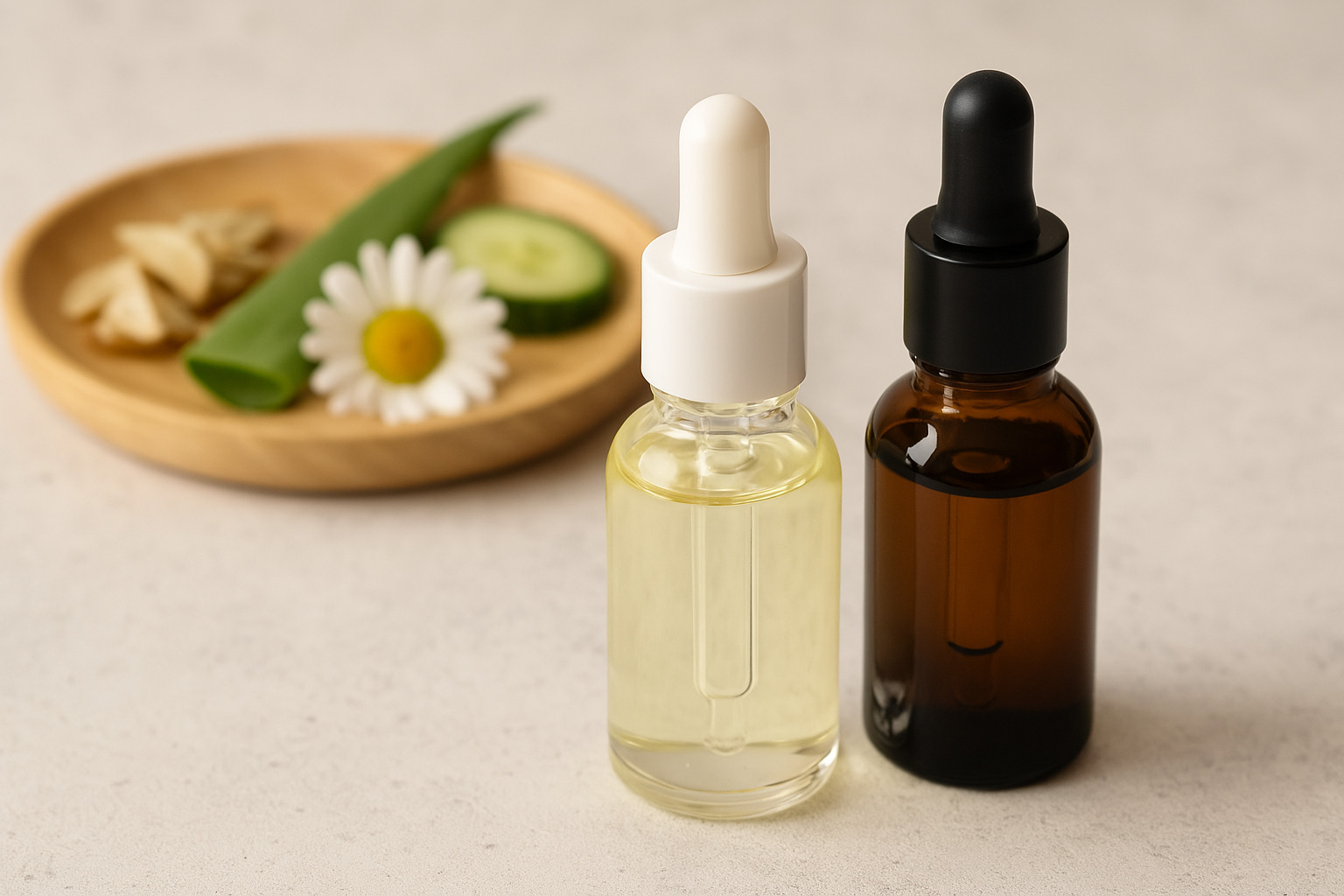Choosing between natural and chemical eye serums depends on your skin’s needs, sensitivity, and your personal preference for ingredients. Both options offer benefits, but one may suit your lifestyle and skin better than the other.
Natural Eye Serums: What They Offer
Natural eye serums rely on botanical extracts, oils, and vitamins sourced from plants, seeds, and fruits. They appeal to those wanting fewer synthetic ingredients near their eyes.
Benefits of Natural Eye Serums:
- Gentler on sensitive skin: Fewer irritants for those prone to redness and dryness.
- Rich in antioxidants: Ingredients like green tea, rosehip oil, and chamomile help combat free radicals.
- Hydration from nature: Hyaluronic acid derived from plants, aloe vera, and cucumber extracts support moisture retention.
- Minimal chemical processing: Reduces the risk of allergic reactions for some users.
Popular Natural Ingredients:
- Aloe Vera
- Caffeine from green tea
- Vitamin E oil
- Rosehip seed oil
- Jojoba oil
Chemical Eye Serums: What They Bring
Chemical eye serums often feature lab-formulated ingredients aimed at delivering fast and visible results. Many dermatologists recommend these for targeted skin concerns.
Benefits of Chemical Eye Serums:
- Proven active ingredients: Retinol, peptides, and growth factors show strong clinical results for reducing fine lines and dark circles.
- Controlled formulation: Consistency in ingredient quality and stability.
- Fast absorption: Engineered for deeper skin penetration to work at a cellular level.
- Targeted treatments: Specialized for issues like pigmentation, puffiness, and deep wrinkles.
Common Chemical Ingredients:
- Retinol
- Hyaluronic acid (synthetic)
- Peptides
- Vitamin C derivatives (like ascorbyl glucoside)
- Niacinamide
Natural vs. Chemical: Key Differences
| Feature | Natural Eye Serums | Chemical Eye Serums |
|---|---|---|
| Ingredients | Plant-based, organic extracts | Lab-formulated, synthetic compounds |
| Best for | Sensitive, allergy-prone skin | Visible anti-aging results |
| Absorption | Slower, surface-level hydration | Faster, deeper penetration |
| Customization | Limited variations in potency | Highly specialized formulations |
| Sustainability | Often eco-friendly, biodegradable | Depends on brand practices |
Factors to Consider Before Choosing
1. Skin Sensitivity
- Choose natural serums if your skin reacts easily to strong products.
- Opt for chemical serums if your skin can tolerate active ingredients like retinol.
2. Skin Goals
- For hydration and light brightening, natural options work well.
- For wrinkle reduction, pigmentation correction, or firming, chemical serums perform better.
3. Lifestyle and Values
- If eco-conscious beauty is a priority, seek certified natural brands.
- If visible, rapid changes are your focus, clinical-grade chemical serums are a better match.
4. Budget
- Natural serums can be costly due to organic sourcing.
- Chemical serums offer a wider price range depending on brand and concentration of actives.
Hybrid Options: The Middle Ground
Many brands now offer serums that combine natural extracts with clinically tested chemical ingredients. These hybrid products aim to balance efficacy and gentleness.
Examples of hybrid ingredients include:
- Plant-derived peptides
- Naturally sourced hyaluronic acid enhanced with synthetic stabilizers
- Vitamin C stabilized with safe synthetic molecules
Final Thoughts
If you prefer gentle care with botanical benefits, natural eye serums align better. If you seek transformative, science-backed results, chemical eye serums serve your needs more effectively. Always patch test before full application, and adjust based on how your skin responds over time.
